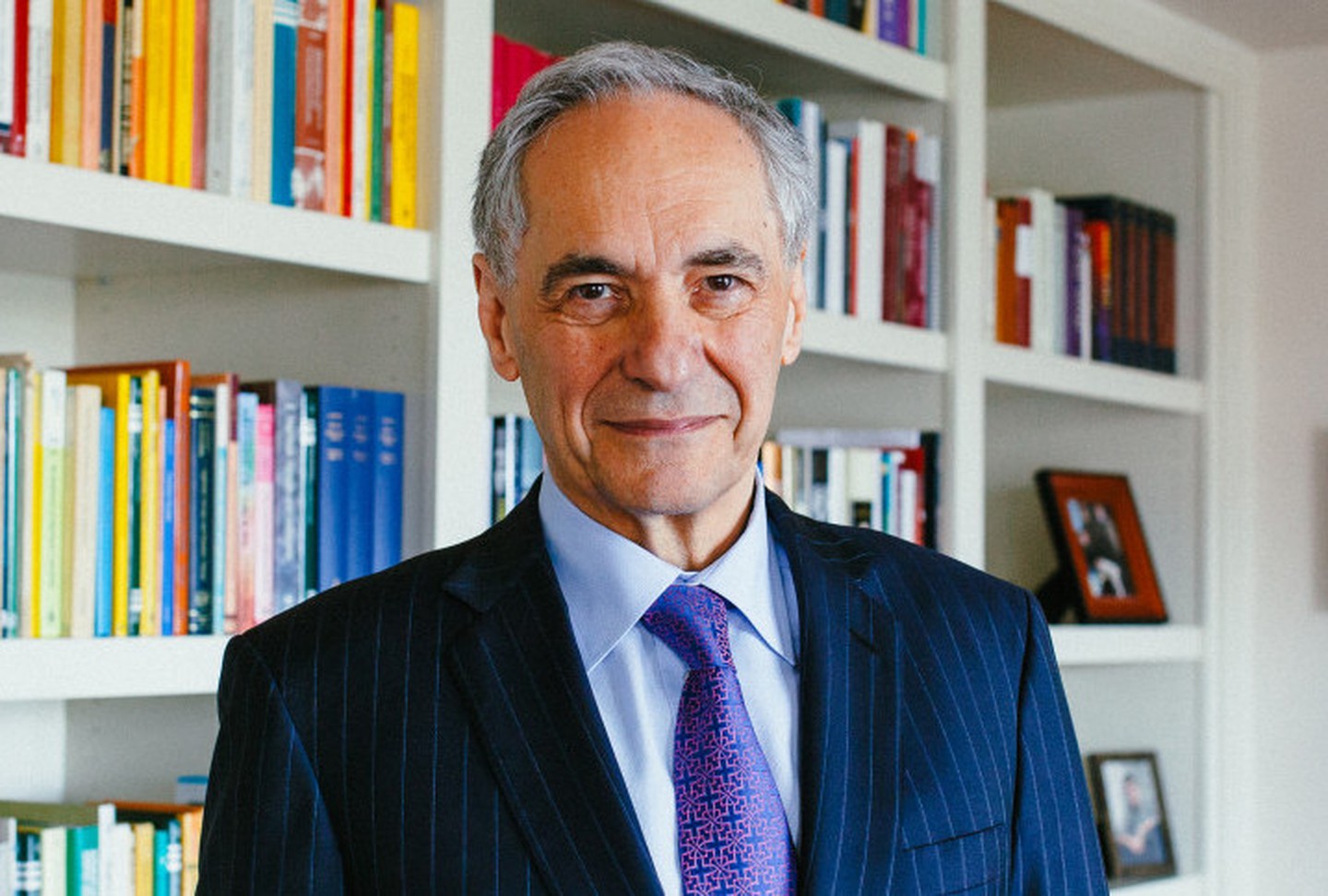In recent times, it has become more important than ever for future leaders to understand and explore ways to do business in a more responsible and sustainable manner.
There is an overwhelming demand for schools around the world to repurpose their programs and play a crucial role in building a more socially responsible model of capitalism.
The Financial Times plays a key role in equipping faculty members and students from different backgrounds with the relevant tools they need to face the financial and business challenges of today. With the FT’s global perspective, educators can reinvent their programs, and create a more inclusive and diverse approach to develop a more ethical and responsible leadership for the future.
With the rapid expansion and globalisation of US businesses, our next generation of executives will need to nurture a new set of skills in order to succeed in international markets.
Andrew Jack sat down with the president of the University of Chicago, Robert Zimmer, and discussed how his approach to learning and education meshes with the values and morals he believes are vital for nurturing the next generation’s growth in business.
Since taking the job as president of the University of Chicago in 2006, Robert Zimmer has helped oversee significant evolutions which respect its past traditions and strengths including the vigorous defence of free speech and its liberal arts tradition, while pushing to widen access and engage with the local community and the wider world.
“I knew the university and understood how powerful its enduring values are,” he says. “But it needed to be refreshed. It’s very easy for a great institution to become comfortable and complacent.”
Today he is focused on improving access for those from disadvantaged backgrounds. “The idea that talent sits in one group is just wrong,” he adds, as he describes measures to encourage undergraduate admissions from those on lower incomes and other underprivileged backgrounds — including a fresh focus on students from rural areas. “We don’t believe there is a trade-off with diversity.”
There are a lot of gratifying things about my job. But it’s hard to beat the sense that you have helped change the trajectory of someone by giving them opportunity no one thought they would have.
President of University of Chicago
One tactic has been to create a more supportive environment to encourage a more diverse intake. For Hispanic families, for example, that has meant putting them at ease by speaking Spanish to the parents of prospective candidates, often immigrants who have a poor command of English. It has launched summer courses to help familiarise and prepare students for study.
A second, bolder initiative launched last year was to go “test-optional”: to scrap the usual undergraduate application requirement for standardised test scores like the SATs. These are often criticised for favouring those from more privileged backgrounds, who have time to study and receive tutoring to gain high marks. “They weren’t adding anything and may have been discouraging applicants,” he says.
Instead, Chicago uses essays, teacher recommendations and wider information on student achievements. Rather than relying on interviews by alumni — who may recruit in their own image — he has built up a team of admissions officers who develop links to schools which have not traditionally sent students to the university. “When we put our mind to it, we have found the results very encouraging.” Although, he concedes, “maybe you have to work a little harder to find students.”





Another new strategy was a fundraise in order to replace all loans for students with grants. Funds raised in future will also support “need-blind” applications from international students.
“For the upper middle class, loans are part of how you manage your finances,” he says. But he wanted to remove concern for others who find the prospect more daunting. “I talked to a father who said he would send his child to somewhere less good because he was too nervous about debt.”
Mr Zimmer nevertheless defends Chicago’s “full freight” four-year undergraduate price of $250,000 as “offering the best education at a high price.” Its 6,000-strong undergraduate community receives a liberal arts education designed not to train them for a specific job but to “expand students’ horizons and empower them for their whole life. We are not providing information transmission but teaching people how to think.”
The environment should be teaching people how to interact, give them the courage to be willing to challenge their own arguments without being fearful or offensive.
President of University of Chicago
He is also troubled by the US administration’s hostility to immigration. “We have students worrying if they go home, will they be able to come back? It creates stress and raises question marks over whether the US is the right place to come to study. I would like to see immigration policies that take account of our higher education’s huge comparative advantage. The country should encourage an environment to attract the most talented and make it easy for them to stay.”
Reflecting on achievements that include the creation of a molecular engineering institute, a China centre and partnerships with arts organisations and high schools in Chicago, he admits that fundraising is key. This has almost tripled during his tenure.
Describing the reform process he has led, he stresses: “Part of the art of the university president is dealing with balance. The academic community is special. There is so much distributed authority, but that should not deter you from being imaginative. You need to find people who want to do things with you.”





The original article by Andrew Jack was published on FT.com under the title Robert Zimmer: respecting tradition while overhauling an institution. To read the full piece, click here.
Academic institutions in the United States have built long-standing relationships with the Financial Times, many of which match Robert’s goals for the University of Chicago.
With a focus on ‘information for all’, the FT adds value to students from all walks of life, no matter the intentions for their careers post-studies.
Not only does the FT ground theories taught in classes with real-life scenarios, but the content the students and professors are consuming, interacting with and using for research ensures that essays and papers are strengthened with unbiased, trusted and award-winning journalism.
But how can the FT’s truly global news and insights benefit staff and students domestically and internationally? You can find out more about our universities and colleges in our education blog post here.
It doesn’t matter if someone’s going to work on Wall Street or in London, whether you’re working in banking and finance and technology or for your family business, you need to stay current with information and the Financial Times is that resource.
Visiting professor of international business, George Washington University
To read how George Washington University has deployed the FT across their departments, click here.
An FT Group Subscription offers a practical way for educational institutions to incorporate current affairs and an international perspective into their curriculums, bridging the gap between theory and reality.
For more information about how the Financial Times can help your organisation or to request a free trial, please get in touch.
